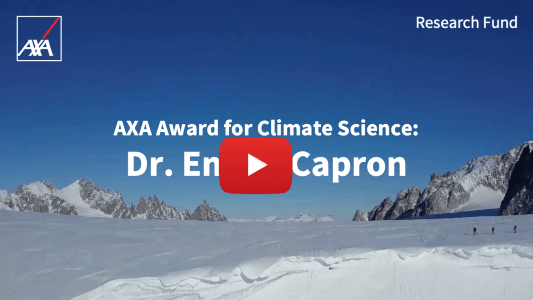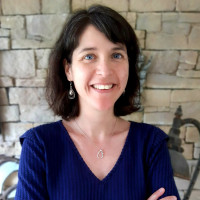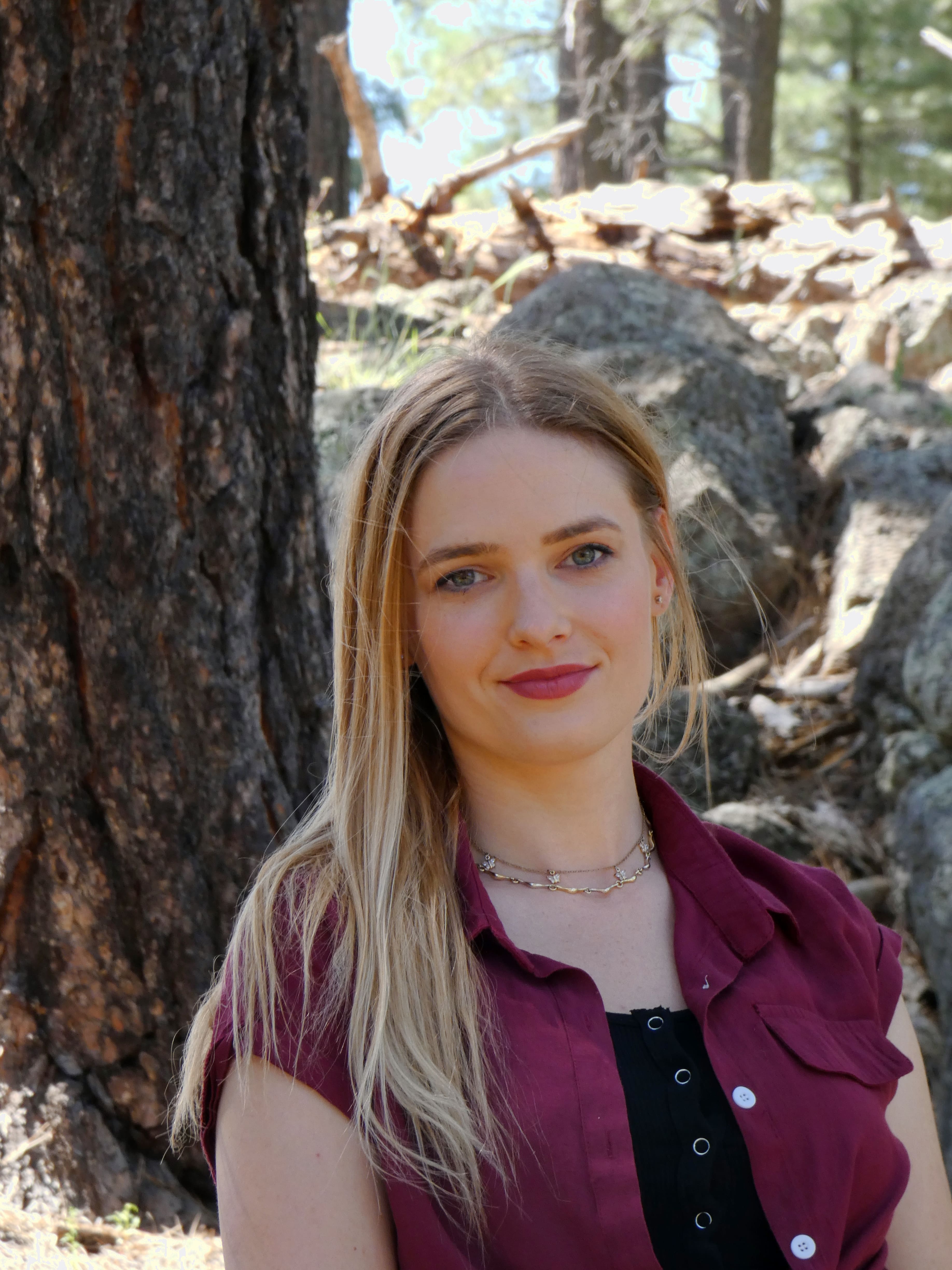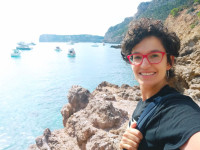Climate Change
AXA Awards
France
Investigating Past Abrupt Climate Changes to Understand Causes and Assess Future Predictability
Watch the video and read her interview below:

Why is the study of past climate changes so important, and what are the real-world impacts of your research?
A ~3 to ~12°C Arctic warming above pre-industrial levels is projected by 2100. Even if future greenhouse gas emissions are reduced to limit global warming to 2°C, the warming will continue beyond 2100 for the next millennia because of long-term feedbacks related to ice-sheet volume loss and the carbon cycle. These feedbacks are difficult to represent in models used for future climate projections, which are calibrated using climate observations from only the past 40 years. Studying ancient climates through natural archives is crucial for documenting greater diversity in climate change than that from recent observations, both in terms of duration and amplitude, and spanning much longer time scales.
The lack in models of potentially important long-term feedback processes associated with a warmer world underscores the importance of exploring climate dynamics during past warm intervals. Also, the ability to predict the likelihood of future abrupt climate changes occurring at annual-to-centennial time scales in a warmer world remains unacceptably low. Investigating past abrupt changes to understand involved mechanisms and assess their predictability is therefore essential.
What projects are you presently involved in and what are your future plans?
Looking at climate variations from multi-annual to multi-millennial timescales over the past 1.5 million years, I tackle key scientific questions such as:
- What processes are responsible for the occurrence of past warming events of 5-16°C in Greenland happening faster than 50 years? What are their global environmental impacts?
- What interactions have occurred between climate change and the carbon cycle in the past, especially during periods of multi-millennia polar warming of similar magnitude to the one projected by 2100?
I address these questions using a multi-faceted approach that involves the experimental analysis and interpretation of climate and environmental tracers measured in polar ice cores for information about past changes in polar temperatures, atmospheric CO2 concentrations, atmospheric circulation, and sea-ice cover changes. It also entails the integration of the ice-core-based results with environmental data from marine and terrestrial archives and the comparison of this environmental data with climate model simulations to increase understanding of involved mechanisms and evaluate the capabilities of those models, which are also used for future climate predictions.
I also co-coordinate a H2020-MSCA-ITN project named DEEPICE (2021-2025), aimed at training 15 PhD students across Europe in experimental techniques for ice-core analyses, modelling development, and communicating with the public on climate change; and I am involved in an European H2020 Beyond-EPICA Ice Core Project (2019-2026) to drill a new deep ice core in Antarctica.
How did you get interested in paleoclimatology?
Nothing really predicted I would embrace an academic career in science. One of my physics teachers in high school told me I was not cut out to continue in science. But I was too interested in it to listen to him! I planned to get a degree in Earth Sciences and teach but I loved studying too much to stop, especially when I discovered the fascinating science of paleoclimatology. How amazing it was to learn that scientists could reconstruct the climate of the past by analyzing natural archives such as ice cores drilled in Greenland and Antarctica, or marine sediments sampled at the bottom of the ocean! I needed to know more about how to unlock secrets from polar ice. After finishing my PhD at the Laboratory for Sciences of Climate and Environment, I worked as a scientist for the British Antarctic Survey and for the Niels Bohr Institute, University of Copenhagen. Because my research on past climate changes is based on analyzing and interpreting geochemical tracers measured on the ice and in the trapped air in deep ice cores drilled in polar regions, I’ve worked in some of the most fascinating places on Earth. I have participated in the field operations of several international ice core drilling projects, spending months at a time in Greenland and Antarctica.
Past climate research is crucial for understanding our changing world and I feel privileged to belong to this scientific community. I am also part of the Make Our Planet Great Again Initiative launched by French President Emmanuel Macron. It is a call to researchers, students, entrepreneurs, associations, NGOs, civil society as a whole to mobilize and join France in leading the fight against global warming.
Do you have any advice for aspiring Paleoclimatologists?
Paleoclimatology is a key field in the context of understanding current and future climate changes, and there are still plenty of secrets to unlock from the past. Increased competition and uncertain career prospects in academia can make it difficult for young scientists to believe that they have a place. But I would encourage young scientists to develop their persistence and not be afraid to be ambitious.
How has science helped in mitigating climate change?
Science has been crucial to providing evidence that the warming of the Earth’s climate system is unequivocal and, since the 1950s, that many of the observed changes are unprecedented over decades to millennia. Science has also shown that it is extremely likely that human influence has been the dominant cause of the observed warming since the mid-20th century. Science holds the key to predicting future climate change and to assessing the risks to and impacts on natural and socio-economic systems.
Biography
After receiving her PhD at the Laboratory for Sciences of Climate and Environment in France, Dr. Emilie Capron worked at the British Antarctic Survey and at the Niels Bohr institute of the University of Copenhagen. Since 2020, she is a research scientist at the Institute of Geosciences and Environment, employed by the CNRS and leading a project (HOTCLIM 2020-2025) funded by the Make Our Planet Great Again initiative. Her research aims at reconstructing past climate changes over the past 1.5 million of years using natural archives such as polar ice cores. She studies time intervals during which abrupt climate changes occurred as well as past periods characterized by a polar warming of similar amplitude to the one projected by 2100.
Find below a selection of scientific articles written by Dr. Capron or to which she contributed significantly
The anatomy of past abrupt warmings recorded in Greenland ice: Published in Nature Communications
Past perspectives on the present era of abrupt Arctic climate change : Published in Nature Climate Change
A global picture of the first abrupt climatic event occurring during the last glacial inception: Published in Geophysical Research Letters
Challenges and research priorities to understand interactions between climate, ice sheets and global mean sea level during past interglacials: Published in Quaternary Science Reviews
Palaeoclimate constraints on the impact of 2 °C anthropogenic warming and beyond: Published in Nature Geosciences
Videos:
FLASH | Quels secrets renferment les glaces en Antarctique ?
Emilie Capron, Paleoclimatologist
July 21, 2021

Emilie
CAPRON
Institution
Institute of Environmental Geosciences
Country
France
Nationality
French
Related articles
Climate Change
Post-Doctoral Fellowship
Hungary
How Will Climate Change Affect Bird-Spread Diseases
Expected start date:Aug-2023 Human, animal, and environmental health are interconnected. Climate change may alter the transmissions of diseases that can... Read more

Tamara
SZENTIVANYI
Center for Ecological Research
Marine Biodiversity
Climate Change
Post-Doctoral Fellowship
Spain
Climate-Smart Strategies to Develop Resilience in Artisanal Fisheries of Mediterranean Marine Protected Areas
Determining the climate risk exposure of marine ecosystems is crucial to develop strategies that will strengthen communities’ resilience. Studies have... Read more

Marina
SANZ MARTíN
.thumbnail.jpg)